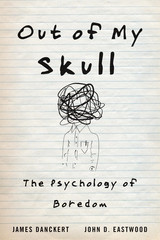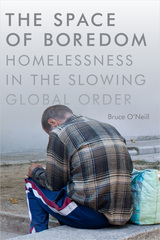



Rare is the person who has never known the feelings of apathy, sorrow, and uselessness that characterize the affliction known as melancholy. In this book, one of Europe's leading intellectuals shows that melancholy is not only a psychological condition that affects individuals but also a social and cultural phenomenon that can be of considerable help in understanding the modern middle class. His larger topic is, in fact, modernity in general.
Lepenies focuses not on what melancholy is but on what it means when people claim to be melancholy. His aim is to examine the origin and spread of the phenomenon with relation to particular social milieux, and thus he looks at a variety of historical manifestations: the fictional utopian societies of the Renaissance, the ennui of the French aristocracy in the seventeenth century, the cult of inwardness and escapism among the middle class in eighteenth-century Germany. In each case he shows that the human condition is shaped by historical and societal forces--that apathy, boredom, utopian idealism, melancholy, inaction, and excessive reflection are the correlates of class-wide powerlessness and the failure of purposeful efforts.
Lepenies makes inventive use of an extraordinary range of sociological, philosophical, and literary sources, from Robert Burton's Anatomy of Melancholy to the ideas of contemporary theorists such as Robert K. Merton and Arnold Gehlen. His study gains added richness from its examination of writers whose works express the melancholy of entire social classes--writers such as La Rochefoucauld, Goethe, and Proust. In his masterly analysis of these diverse ideas and texts, he illuminates the plight of people who have been cast aside by historical change and shows us the ways in which they have coped with their distress. Historians, sociologists, psychologists, students of modern literature, indeed anyone interested in the problems of modernity will want to read this daring and original book.

What do we mean when we say that we are bored? Contributors to this volume, which include artists, art historians, psychoanalysts, and a novelist, examine boredom in its manifold and uncertain reality. Each part of the book takes up a crucial moment in the history of boredom and presents it in a new light, taking the reader from the trials of the consulting room to the experience of hysteria in the nineteenth century. The book pays particular attention to boredom’s relationship with the sudden and rapid advances in technology that have occurred in recent decades, specifically technologies of communication, surveillance, and automation. On Boredom is idiosyncratic for its combination of image and text, and the artworks included in its pages—featuring Mathew Hale, Martin Creed, and Susan Morris—help turn this volume into a material expression of boredom itself. It will appeal to readers in the fields of art history, literature, cultural studies, and visual culture.

A Behavioral Scientist Notable Book of the Year
A Guardian “Best Book about Ideas” of the Year
No one likes to be bored. Two leading psychologists explain what causes boredom and how to listen to what it is telling you, so you can live a more engaged life.
We avoid boredom at all costs. It makes us feel restless and agitated. Desperate for something to do, we play games on our phones, retie our shoes, or even count ceiling tiles. And if we escape it this time, eventually it will strike again. But what if we listened to boredom instead of banishing it?
Psychologists James Danckert and John Eastwood contend that boredom isn’t bad for us. It’s just that we do a bad job of heeding its guidance. When we’re bored, our minds are telling us that whatever we are doing isn’t working—we’re failing to satisfy our basic psychological need to be engaged and effective. Too many of us respond poorly. We become prone to accidents, risky activities, loneliness, and ennui, and we waste ever more time on technological distractions. But, Danckert and Eastwood argue, we can let boredom have the opposite effect, motivating the change we need. The latest research suggests that an adaptive approach to boredom will help us avoid its troubling effects and, through its reminder to become aware and involved, might lead us to live fuller lives.
Out of My Skull combines scientific findings with everyday observations to explain an experience we’d like to ignore, but from which we have a lot to learn. Boredom evolved to help us. It’s time we gave it a chance.

Lars Svendsen brings together observations from philosophy, literature, psychology, theology, and popular culture, examining boredom's pre-Romantic manifestations in medieval torpor, philosophical musings on boredom from Pascal to Nietzsche, and modern explorations into alienation and transgression by twentieth-century artists from Beckett to Warhol. A witty and entertaining account of our dullest moments and most maddening days, A Philosophy of Boredom will appeal to anyone curious to know what lies beneath the overwhelming inertia of inactivity.


In the midst of societal optimism, how do young men cope with the loss of a vibrant future? Young Men, Time, and Boredom in the Republic of Georgia provides a vivid exploration of the tension between subjective and societal time and the ways these tensions create experiences of marginality among under- or unemployed young men in the Republic of Georgia.
Based on long-term ethnographic fieldwork, Martin Demant Frederiksen shows how the Georgian state has attempted to make the so-called post-Soviet transition a thing of the past as it creates new ideas about the future. Yet some young men in the regional capital of Batumi do not feel that they are part of the progression these changes create. Instead, they feel marginalized both by space and time—passed over and without prospects.
This distinctive case study provides empirical evidence for a deeper understanding of contemporary societal developments and their effects on individual experiences.
READERS
Browse our collection.
PUBLISHERS
See BiblioVault's publisher services.
STUDENT SERVICES
Files for college accessibility offices.
UChicago Accessibility Resources
home | accessibility | search | about | contact us
BiblioVault ® 2001 - 2025
The University of Chicago Press









